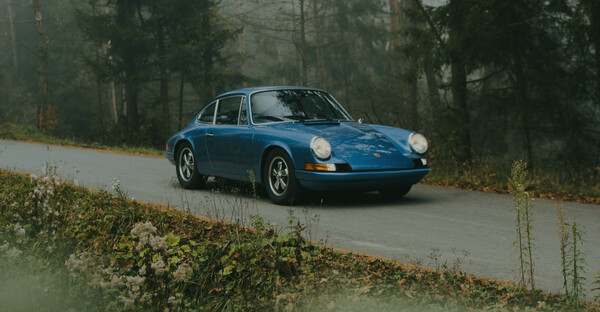Description
The BMW 503 is a two-plus two-seat two-door sports car manufactured by Bayerische Motoren Werke.
The eight-cylinder V engine developed for the BMW 502 saloon was and remained for a long time the only German cast aluminum eight-cylinder. It served as the basis for an ambitious sports car project, which commercial director Hanns Grewenig pushed through against the wishes of BMW's then chief engineer, Kurt Donath.
An initial body design by Veritas initiator Ernst Loof was rejected by BMW management. Instead, Grewenig commissioned Albrecht Graf von Goertz, who had already designed the BMW 507 through the mediation of the American importer Max Hoffman, to design a luxurious pontoon-shaped sports car with a classic BMW kidney grille. After 18 months of development, the BMW 503 and BMW 507 appeared at the September 1955 International Motor Show. The trade press and the public were enthusiastic.
Although the BMW 503 was awarded gold medals by the juries of the beauty contests in Cannes, Rome, Lisbon, Vienna and Wiesbaden, the car was not a great sales success, mainly due to the high price: in May 1956, BMW asked 29, 500 marks for the coupe and convertible, in December 1957 the car cost 31, 500 marks and in July 1958 32, 950 marks. Since a terraced house cost almost double at that time, only well-to-do customers - such as Graf Faber-Castell, Rudolf -August Oetker and film actress Sonja Ziemann - could afford the car.
The aluminum body was manufactured by coachbuilder Baur. The 3, 168 cc engine delivered 140 hp (103 kW) at 4800 rpm and accelerated from 0 to 100 km/ h in 13. 3 seconds. The top speed was specified as 190 km/ h. As with the BMW 507, the lateral "gills" were intended to prevent heat build-up in the engine compartment. Given the thermal issues, BMW has made some BMW 503s with air outlets on the sides of the front fenders at customer request. Count Goertz subsequently approved this change as aesthetically valuable.
The aluminum body was manufactured by coachbuilder Baur. The 3, 168 cc engine delivered 140 hp (103 kW) at 4800 rpm and accelerated from 0 to 100 km/ h in 13. 3 seconds. The top speed was specified as 190 km/ h. As with the BMW 507, the lateral "gills" were intended to prevent heat build-up in the engine compartment. Given the thermal issues, BMW has made some BMW 503s with air outlets on the sides of the front fenders at customer request. Count Goertz subsequently approved this change as aesthetically valuable.
The BMW presented here comes from Italy. It is a black 503 with a red leather interior. This is a beautiful combination and the leather is still of perfect quality. Furthermore, the car looks absolutely great, also from below. The engine runs nicely and you can see from the finish that this is a top mobile. It drives, shifts, steers and brakes perfectly. A real gentlemen's car.
Metropole Classic Cars B. V. | More photos on - details above | 400+ Classic cars, motors & trucks; 30. 000m2 Historical Automotive Experience.
Contact | Roy Bolks Tel/ Whatsapp: the details below | Robert Fluttert Tel/ Whatsapp: the details below
Email | using the button below
Export costs | Please contact us for the rates to your country
Location | Druten (NL) | 25 km from German border | Amsterdam Schiphol Airport Airport at 100 km
View this car on - details above















![Midland Automotive [Sales]](https://assets.carandclassic.com/uploads/traders/thumbnails/ccts2141.jpg?ar=1%3A1&auto=compress&fit=fillmax&h=1200&ixlib=php-4.1.0&q=90&w=1200&s=c11e55d71fadbda252b0acf5b19cd204)






